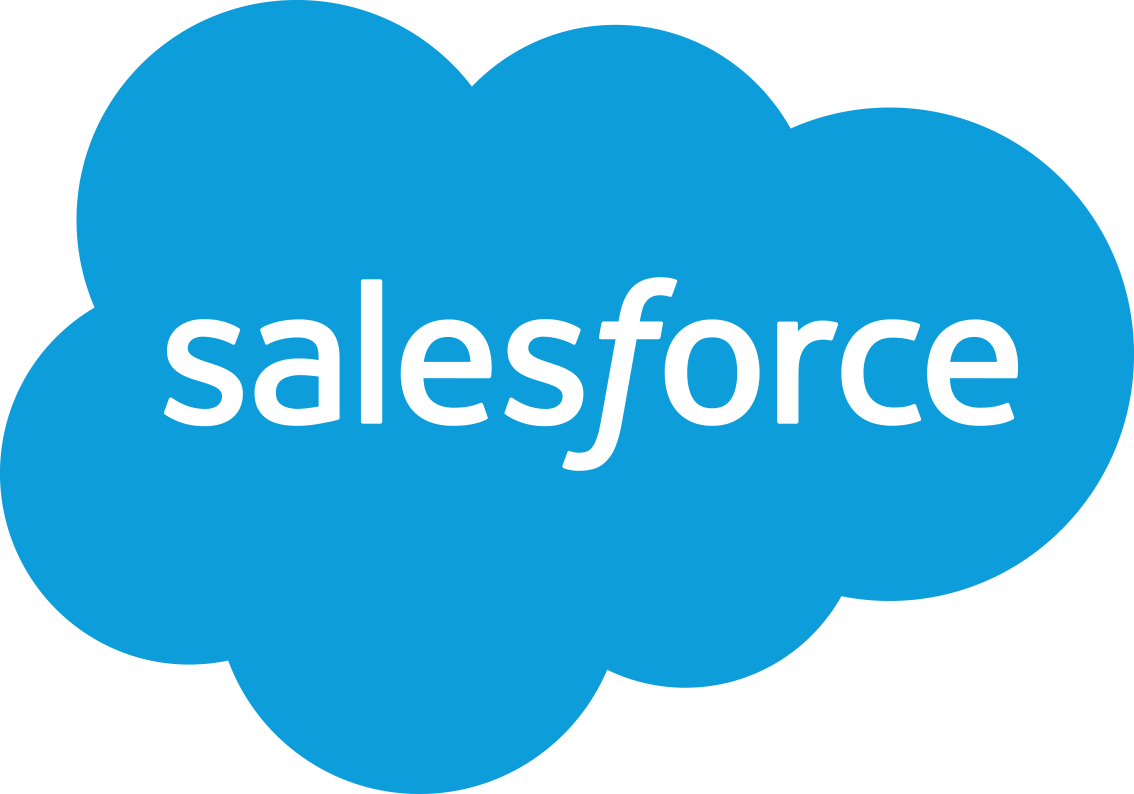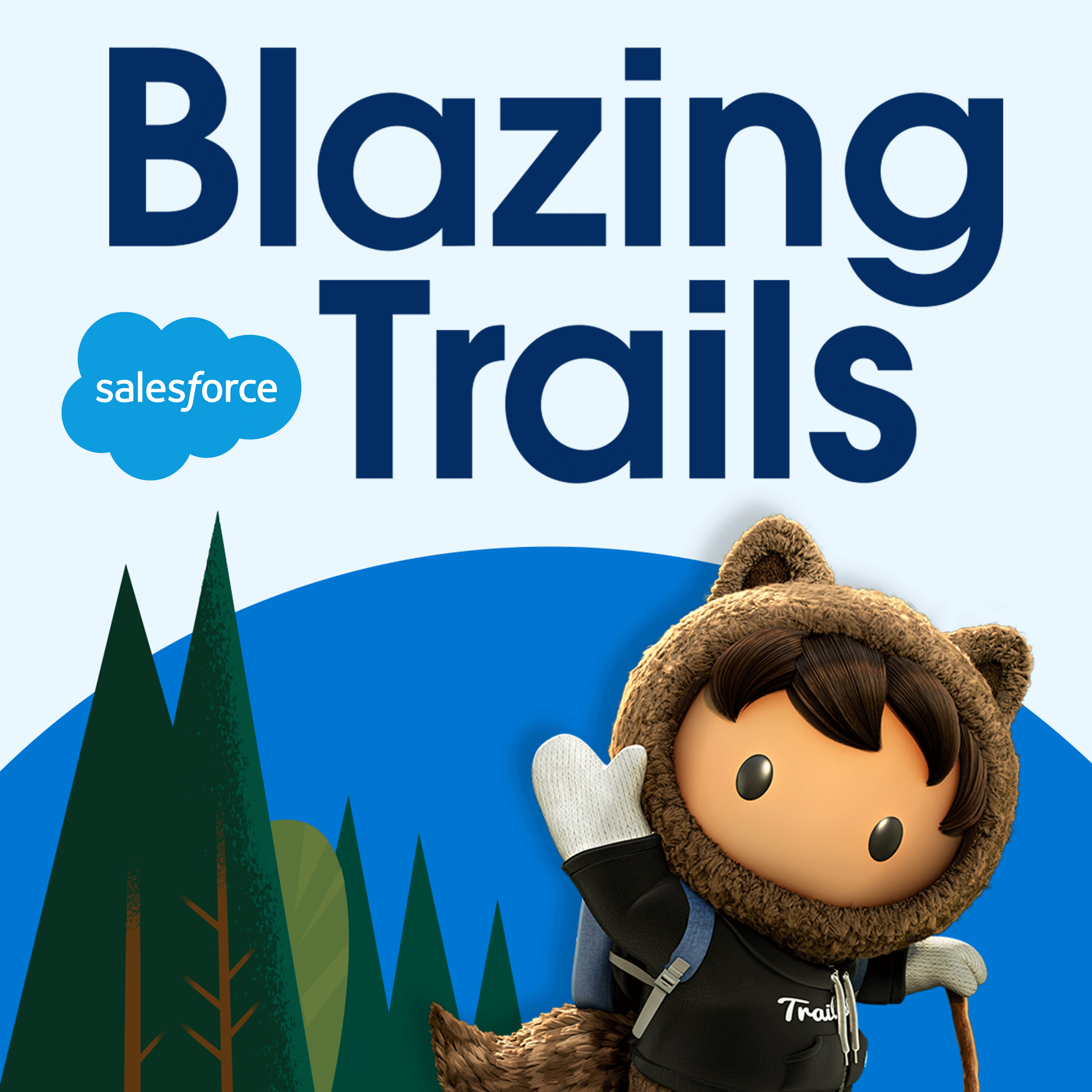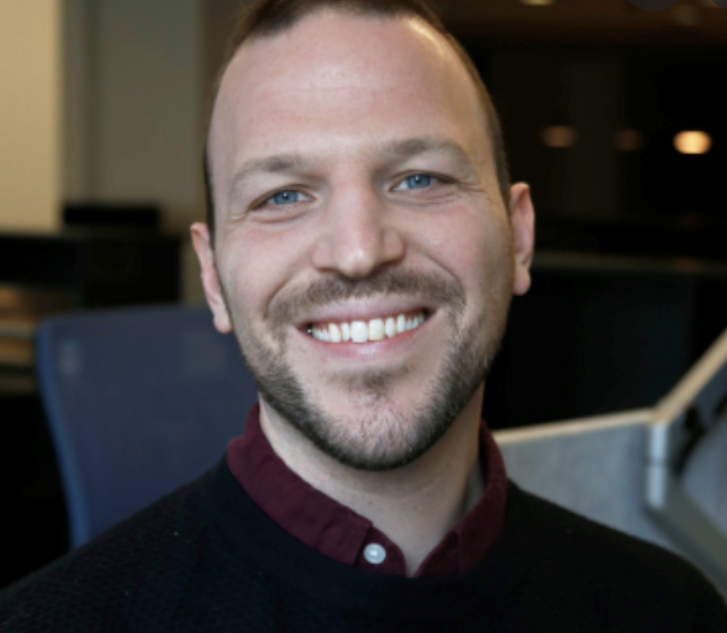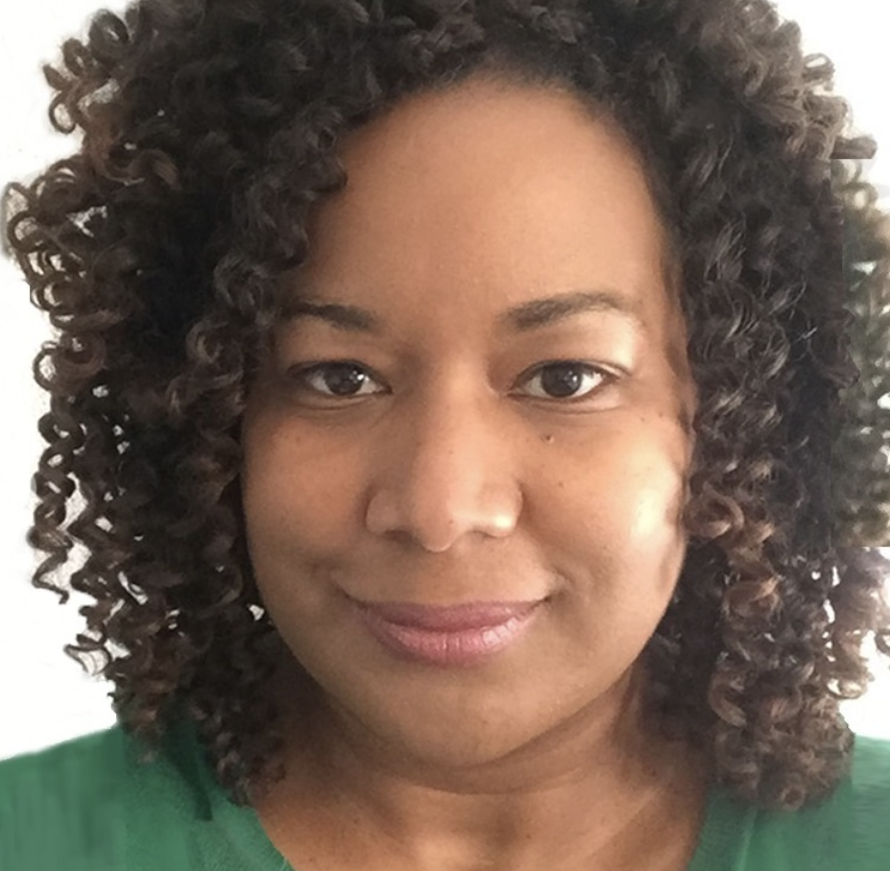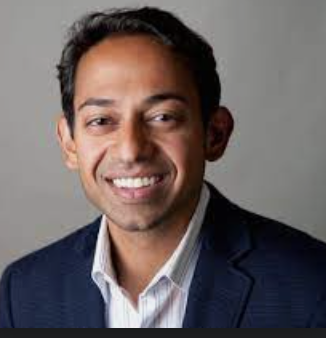Can Cities Be Sustainable? A Discussion with Kiran Bhatraju and Maisie Hughes
- 0.5
- 1
- 1.25
- 1.5
- 1.75
- 2
Michael: Welcome back to Blazing Trails. I'm your host, Michael Rivo, from Salesforce studios. Today, I'm joined by Senior Director of Product Marketing here at Salesforce Jen Brown, to talk about our recent Net Zero Summit in Washington, D. C. Welcome, Jen.
Jen: Thanks for having me, Michael.
Michael: Okay, great. Well, let's just jump right into it. Can you tell us a little bit about the summit? What did we set out to do in the Net Zero Summit this year?
Jen: With the Net Zero Summit, we really meant to bring together all stakeholders to get the world to Net Zero Now. Those stakeholders include government groups, educational institutions, corporations, nonprofits, activists. It really takes so many different stakeholders to get the world to Net Zero, and they need to work together. We've seen many companies in the last year making Net Zero commitments, and now's the time to bring all those people together to turn those commitments into action, to make a plan, to learn from each other. It was so exciting at the event. We saw many people connecting, you who are peers, all working on corporate sustainability, or making connections with partners who could help them succeed and help them get started on their path to Net Zero.
Michael: Tell me about some resources that Salesforce has where people can go learn more about this.
Jen: Absolutely. Our hub for everything is very easy to remember. It's salesforce. com/ sustainability. Our team has put a number of resources on there that help companies get started on their climate action and Net Zero journey. We have a climate action plan, which is kind of a handbook for any company to get started on thinking holistically about its climate action strategy and how to go get started on Net Zero. Then on that same site, you can find Net Zero Cloud information, and also our sustainability team has put out a number of fantastic white papers that go into more specific categories, like how to work with suppliers on reducing emissions, how to move to renewable energy, how to do a TCFD report. There's some great resources on that page to get you started.
Michael: Okay, fantastic. Give me that URL one more time.
Jen: Salesforce. com/ sustainability.
Michael: Thanks, Jen. Now, let's jump into the conversation about the future of sustainable cities recorded at the Salesforce Net Zero Summit in April 2022, featuring Kiran Bhatraju, CEO and founder of Arcadia, Maisie Hughes, Senior Director of Urban Forestry at American Forest, and moderated by Nick Lichtenberg, Executive news editor at Fortune magazine.
Nick: I'm here with Maisie and Kiran. If you're comfortable, I'd love for you guys to introduce yourselves and talk a little bit about what you do with sustainability
Maisie: I'm Maisie. I am the Senior Director of Urban Forestry for American Forests, and I manage our Urban Forestry team. We are looking at how to make cities more equitable by making sure that trees get into those neighborhoods that need them the most.
Nick: And, Kiran.
Kiran: Kiran Bhatraju, I'm the Founder and CEO of Arcadia. We're a technology company. We help connect new energy companies, so solar storage, EVs, smart thermostats to energy grids and utility data.
Nick: Cool. Yeah. Salesforce brought us here today to talk about this great topic of sustainable cities. We've got research from Deloitte that shows cities are responsible for 40% of total energy consumption, and then up to 70% of greenhouse gas emissions, so they play a huge role in sustainability and meeting climate targets. It's going to require a big transformation of every industry. You guys are both here today because you can each speak to a piece of this larger puzzle. First question is, can you share a bit about your organizations and initiatives you're working on, specific initiatives that aim to create this more sustainable city that we're talking about?
Kiran: Yeah. So at Arcadia, I would say our north star is very much impact, and there's really no... The beauty of our business, there's no real trade offs. The more we can get clean, decentralized energy products into the market, the better we sort of do. One of the things we free folks a lot on is unlocking data. I think this is sort of one of the things that doesn't get talked about as much in sustainability and energy is in America today, your sort of clean energy destiny is determined by your zip code. Where you live, really determines if you have access to solar, if you can be more efficient if the incentives exist for you. We're trying to unlock data so that companies can help make this building more efficient, can help use energy, for example, in this building at the right times of day so they're not using just carbon based fuels, but are sort of matching their energy usage to what's happening on the grid. I think cities, whether or not a lot of people realize this, a lot of cities in America actually manage their local utility. Some big cities like Nashville, Orlando, Portland, the actual utility, the energy infrastructure is actually manage by the city itself. We do a lot of work to sort of unlock that data, whether it's from the utility, for the EV company, for the solar storage company center.
Nick: It's like if you show them the evidence of what the data says, you can sort of change government's minds and utilities minds about how they manage that.
Kiran: Yeah. I mean, you can ask anyone in your life, they probably have no idea how much energy they use, what a kilowatt hour is, what times of the day are cleaner or dirtier. It's true for cities. It's true for businesses and large commercial buildings, like the one we're in.
Nick: Yeah.
Kiran: It's been stove piped, right? It's been sort of a closed data source. By unlocking that, you're not just benchmarking and exposing everyone's carbon intensity, but then you can actually take actions on it. The companies that work with us, that's the work they're doing with the data.
Nick: Would you say that's similar for you Maisie, or another initiative you want to highlight?
Maisie: Yeah, I think it's similar in some ways. We also look at data. We look at data for outside of the building envelope, of course. We have the tree equity score, which anyone can actually use by going to the treeequityscore. org, and you can find out how equitable your neighborhood is based on a number of different factors. Our super geniuses in our GIS department started to take a deep dive looking into equity. That really helps us to have a tool that we can give to municipalities, that we can give to our on the ground partners to figure out how they can prioritize tree planting in those neighborhoods that need it the most.
Nick: That actually jumps us forward in my prepared questions for you guys. Climate change really affects vulnerable communities more, so can you talk about what challenges you're trying to solve there? What you're seeing in that space with progress on that?
Maisie: Yeah. I definitely think how we define vulnerability is really important. What's super awesome about the work that we're doing at American Forest is we're not just looking at racial disparities when we're talking about vulnerability. We're looking at race, but we're also looking at other things like we're looking at how hot that neighborhood is, like urban heat islands. We're looking at how much space there is for green infrastructure in a place. We're looking at where the seniors are, where the children are. We're looking at a number of different factors, and we're putting them in a calculation very scientifically to help drive where we want to prioritize plantings and cities across America, and we are doing it for free.
Nick: For free? That's amazing. Would you say that's similar Kiran, about the issue of vulnerability and climate change?
Kiran: Yeah. I mean, it's without a doubt that most fossil fuel plants are in low and in moderate income communities. Obviously, it's sort of an original sin of the way we've set up our energy system. One of the things we do at Arcadia is we're the largest manager of what are called community solar projects. Not everyone can put solar on their roof, right?
Nick: Right.
Kiran: Not everyone has a roof. Not everyone owns their home. We believe over 70% of Americans today can never access solar. One, because they have a poor credit score, or they have nowhere to put it. Community solars is a really unique product where you can live in an apartment. We do not check credit scores. We only look at, do you pay a power bill? Have you paid it on time? We've sort of ripped away all those regressive requirements that exist for clean energy. These projects are also cited in neighborhoods that provide resiliency to the entire neighborhood, not just a single home. It's tied to the grid. It's an incredible product, and I think cities have a huge hand in expanding these programs because it's good for everyone.
Nick: Yeah. I'm curious a little bit about your backgrounds, too. Would you say there's something about your upbringing or how you grew up that attracted you to this kind of work?
Kiran: Yeah. I grew up in rural Kentucky, if you couldn't tell from my Scots Irish name and accent. It was an amazing place to grow up. It was coal country.
Nick: Yeah.
Kiran: My father worked on black lung patients, very intimately sort of understood energy, where it came from, how it made people sick.
Nick: Right.
Kiran: I think transforming this energy system actually is part of actually transforming equity in America from big corporate entities to decentralized ownership, and access to the benefits. It's frankly, especially in the case with solar, it's cheaper, it's cleaner, doesn't make noise, air quality's better, doesn't ruin our water systems. The benefits are incredible. SI think seeing a lot of that growing up from mountains getting blown off and those type of things, really pushed me into this work.
Maisie: Yeah. I totally understand that feeling. I mean, I grew up surrounded by trees. I grew up in the suburbs of Washington, D. C., actually, not too far from here. I just took for granted that trees are available for everyone. But when I would go visit my aunts and uncles in D. C. on the weekends, I could tell when we crossed the line. I knew exactly when we had crossed over into D. C. because the tree canopy dramatically decreased, dramatically decreased. That's because when we think about urban places, we tend to think about them as places where we just put a whole bunch of buildings. Sometimes the buildings are super cool, right? Definitely want that, but we also need to think about what kind of urban places we want to have, and what we need to think about what is possible and what could be, and it creates space for vegetation to make urban places actually inhabitable. When we're talking about, like heat islands, for example, one of the best remedies for heat island is planting a tree. Trees provide cooling 12 degrees lower under a tree just by planting a tree and letting it get to maturity. That, on a citywide scale, is transformative.
Nick: Yeah, and it's a misconception that we can't have cities with trees in them, right?
Maisie: Right. Especially as we are sitting here in Washington D.C., the original city of trees. I mean, we definitely-
Nick: I didn't even know that.
Maisie: Yeah. It's absolutely. There's a story of the first Governor, and you know, D. C. doesn't have Governors anymore because Boss Shepherd actually blew the budget.
Nick: That's another panel.
Maisie: ...by planting the entire city with trees.
Nick: Wow.
Maisie: Yeah, and then they took away Governors, and now we don't have them anymore.
Nick: Yeah. I mean, I was lucky enough to study abroad in college and I went to London, and it was like the amount of trees there blew my mind because I grew up visiting my grandmother in New York City, and I just thought a city meant skyscrapers, no trees. I thought that's what the rules were.
Maisie: Right. Yeah. Now, we're changing the rules, and that's what's lovely about that. I mean, we're not only changing the rules with sustainable buildings because we're allowing those buildings to actually mimic, to use natural resources like the sun and mimic nature, but we can also include nature in the design of our cities.
Nick: That brings me to another question about the big challenges that you're facing. I mean, we've talked a lot about the key initiatives you're both working on. I think cities are already greener than they used to be, in terms of more trees and there's more solar options, but what are the big challenges that you each would say you're facing?
Kiran: I mean, the guts of most cities are the infrastructure that is your electrical grid, your water system, trash and waste systems, and there's opportunities across each of those. Obviously, we have maybe a water issue in this country that's not really being addressed. We've heard a lot about it in Flint, but could be true in so many parts of America. I've talked about energy access and accessing the electric grid. In a lot of ways, the structures that manage these are, in somewhat times undemocratic, or don't have the right incentives to do the right thing, and maybe provide customers new options, or provide new companies who want to provide new services access to data. In a lot of ways, that can start from your Mayors and your City Council that understand that a huge part of this city's" plumbing," the infrastructure, that they have power over. Public service commissions. A lot of people don't know what a public service commission is. 50 state unelected bodies, in some states elected, but a group of four to five individuals that manage a lot of the regulations around how cities can operate, when it comes to these core infrastructure. We have actually done a lot of work at Arcadia engaging those public service commissions because people don't realize it's an incredible lever at the state, and then down to the city level to enhance sustainability, create new structures and frameworks to be more sustainable and efficient.
Nick: I'd imagine there's mixed success with engagement with public service commissions.
Kiran: Yeah, of course. I mean, at least from a tech perspective, the folks who have heard about it, maybe heard about it through a company like Uber, that had to spend a lot of time changing rules and regs, but in energy, waste, water, they also hold a lot of power. Can you access solar? Can you be more efficient? I'm sure there's regulatory bodies that are saying," Can you plant trees?"
Maisie: Absolutely. Yeah.
Nick: Would you say that's a similar challenge you're facing, or slightly different?
Maisie: I think it's similar because fundamentally, it's kind of this habit energy of the ways that we do things, the ways that we think about how to solve problems. I think we're both trying to overcome that. How do we get people to think about cities differently, and to incentivize making cities sustainable?
Nick: Yeah.
Maisie: I think that shows up not only when you're dealing with public officials, but it also shows up in the way that we run our organizations. It shows up in the way that our partners want to work, so if we come out with a new idea like tree equity, we have to get people on board with that and they really have to understand what's in it for them. I think the other part of that too, is a lot of times sustainability issues are considered partisan, and that's unacceptable because we need to green cities for everyone. We need to green cities for the people who get on your nerves. We need to green cities for the people we don't even like. We have to green cities for the people who disagree with you, right?
Nick: Yeah.
Maisie: It's an issue for everyone. So, how do we change messaging? How do we change mindset so that people can understand that we're all into this together?
Nick: Yeah. So...
Kiran: I think that's incredibly important. There should be nothing partisan about it because ultimately a more sustainable city is part of the economic development. You're attracting jobs and new companies if you have a desirable city. A lot of times at least, a modern desirable city is one that is efficient. We were talking earlier about bike lanes, access to clean energy, trees, parks.
Maisie: Jobs, even.
Kiran: Jobs. Yeah.
Maisie: Yeah, definitely jobs. Place based jobs is critically important. The thing about Urban Forestry is you can't plant an urban tree in a non- urban area. That means all of the Urban Forestry jobs are place based, and so you're creating jobs for the people who need it the most, in the city that they live in.
Nick: That's fascinating. I didn't even think about that, but I mean, your argument here that a tree is a bipartisan issue. I like that a lot.
Maisie: Yeah.
Nick: Well, I think this has been great. We're running a little short of time, but this has been... Do you have a final thought to share with the panel about the sustainable city?
Maisie: Yeah, absolutely.
Kiran: Yeah. I was just say, I think every Mayor... They have so much power as a Mayor to change the way things have been done in the past. Sustainability maybe hasn't been at the top of their hierarchy of what's most important, but I do think it is definitely a focus now for it can promote economic development, and that's something I think every Mayor needs to embrace.
Maisie: Absolutely. I think in addition to representatives, people also have power. I think people have power in their daily choices, and one thing that people can do of course, is visit the tree equities score and check out how their own neighborhood is doing. They can of course, invest in us, invest in tree equity by donating to American Forest. And always, always, if you have the opportunity, plant a tree.
Nick: Then, get involved. Tell your Mayor, tell your local representative," I want my tree equity score to be higher."
Maisie: Absolutely.
Nick: Cool. Well, thank you so much. This has been wonderful to talk about this with you both.
Maisie: Thank you.
Michael: That was Kiran Bhatraju, CEO and Founder of Arcadia, Maisie Hughes, Senior Director of Urban Forestry at American Forest, and Nick Lichtenberg, Executive news editor at Fortune magazine, discussing the future of sustainable cities at Salesforce's Net Zero Summit in April 2022. To learn more about how your company can become more sustainable and achieve Net Zero emissions, check out salesforce. com/ sustainability. That's salesforce. com/ sustainability. Thanks for joining us today. If you like this episode, be sure to subscribe wherever you get your podcast. I'm Michael Rivo from Salesforce studios.
DESCRIPTION
Cities are vital to the world's economies and play a key role in combating climate change. They are responsible for 40% of total energy consumption and up to 70% of greenhouse gas emissions according to a recent report by Deloitte. How can we make cities more sustainable? That's a question that Kiran Bhatraju, CEO and Founder of Arcadia and Maisie Hughes, Senior Director of Urban Forestry, American Forests try to answer this week in a discussion moderated by Nick Lichtenberg, Executive News Editor at Fortune Magazine.
